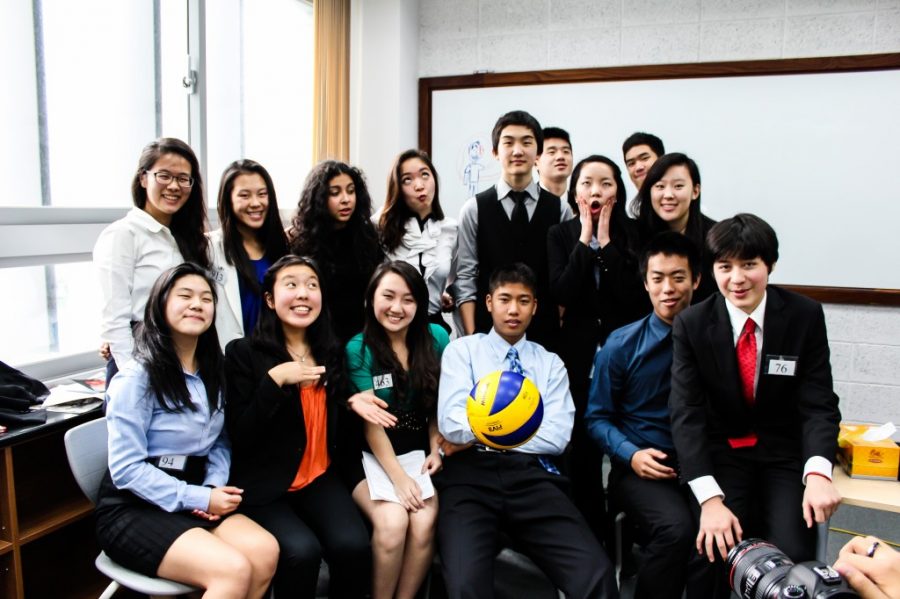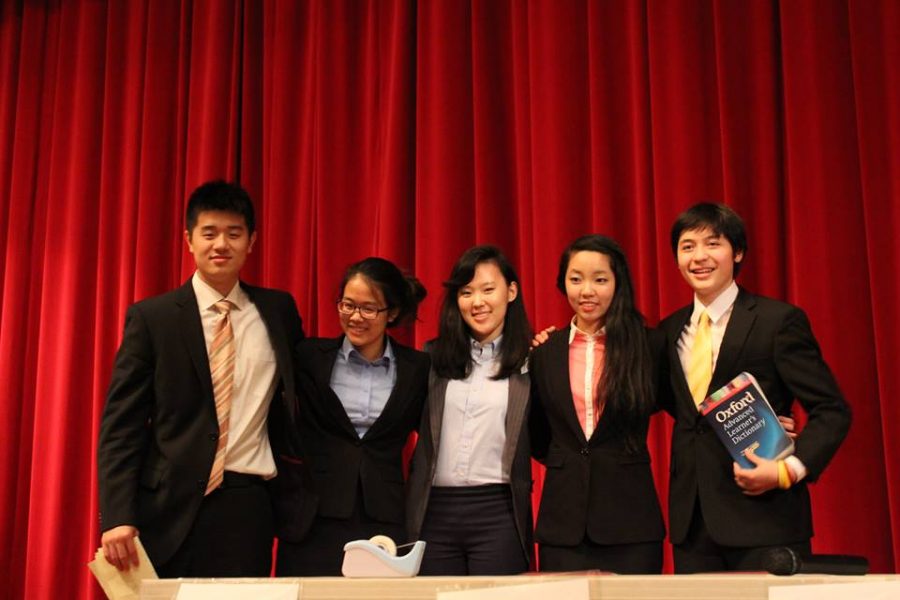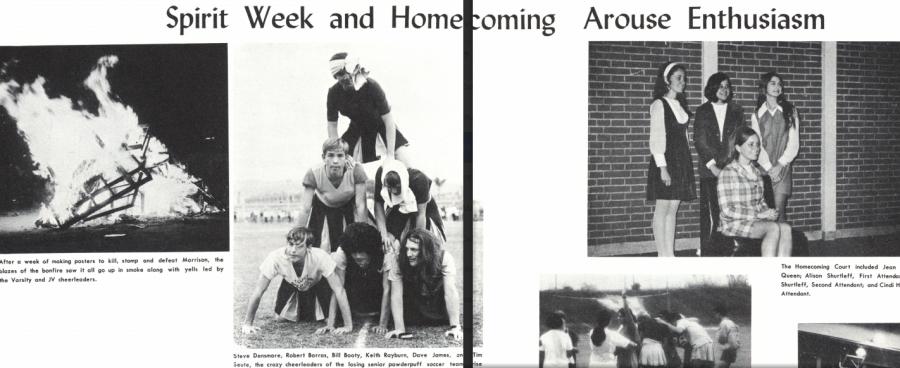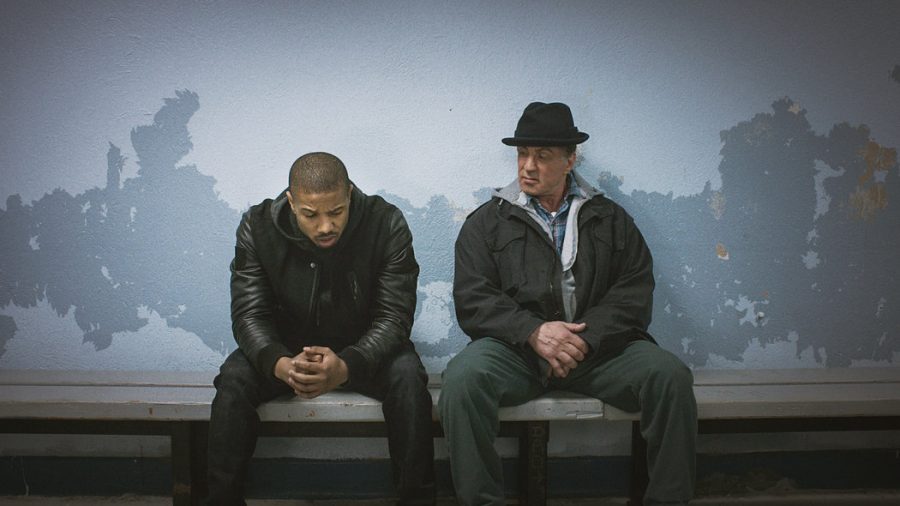Debate
This year, TAS’ IASAS Debate team clinched gold – a feat that had not been accomplished by a TAS team in 14 years. “I was estatic,” Aaron G. (9) said.
For the final debate round, JIS and TAS teams debated on a motion focusing on rehabilitation in the criminal justice system.
One of TAS’ debate teams, consisting of team members Anny S. (12), Georgia H. (12), and Elaine C. (12), as well as researchers Byron C. (10) and Aaron G. (9), qualified for the final round against JIS. The team defended the opposition of the given proposition.
IASAS Debate is a regulated, timed discussion of a proposition. The proposition is determined by the IASAS committee prior to each round of debate.
The TAS team focused on the the Oxford dictionary’s definition of the criminal justice system, which puts no emphasis on the theme of rehabilitation. “The criminal justice system does not have a duty to rehabilitate criminals,” stated Elaine.
“Dangerous people pose a risk to public safety,” noted Anny. “Innocent civilians who are put into risk by such people…are not getting their right to safety.”
“The point of the criminal justice system is to provide justice,” stated Georgia.
For Aaron G. (9), one of the winning team’s researchers, “memorizing all 36 topics” was a challenge. “We got all the topics before Christmas break, and then we were assigned topics that we had to complete [researching] two weeks before cultural convention.”
The win marks the first time an all-girls parliamentary team has placed first in IASAS debate.
“It has been 14 years since TAS last won gold in debate,” Aaron said. “It was a surreal experience.”
-Adrienne S.
Oral Interpretation
Oral Interpretation is a speech event where the speaker takes selection of prose or a story which is then performed and interpreted. Doing Oral Interpretation usually requires intense vocal range and acting ability.
This year’s TAS Oral Interpretation IASAS delegates awere Anjoli G. (10), Eli M. (10), and Juliana C. (11). While united by a love of vocal expression, the pieces they performed are quite different. Juliana’s piece was a fictional account of Jesus’ childhood through the perspective of his best friend, Biff, and was lighthearted, funny, and charming. Eli’s piece took on a more serious tone, and focused on a young art prodigy who struggles to find the balance between painting for himself and painting for others. Anjoli’s piece retold the story of a tall awkward girl who happened to sit next to a celebrity on a plane one day.
Anjoli G. (10) took the first TAS gold medal in Oral Intepreation in 12 years. Eli M. (10) received second place.
-Juliana C.
Extemporaneous speaking
After months of grinding afterschool research the TAS Extemporaneous Speaking Team finally got their long awaited reward when all three participants, Rebecca P. (11), Richard J. (12), and Jerry H. (9), advanced into the IASAS Cultural Convention Extemp Finals.
A fusion of impromptu and debate, Extemporaneous Speaking is a forensics event in which students respond to a variety of questions referring to current events around the world. Participants file and store news articles from a variety of publications throughout the year to use as sources during their 5-7 minute speeches. Each competitor has to select one out of two questions disclosed in an envelope. The questions must be of a “yes or no” variety, and should encourage detailed analysis of the given issue.
Before presenting, each student is given 30 minutes of preparation time during which they can only use their pre-filed sources to produce a speech. The catch? Participants can use neither the internet nor external help.
In the final round, Jerry responded to the question “Will the crisis in Ukraine lead to war?”, Richard responded to the question “Is Egypt better off under military rule?”, and Rebecca responded to the question “Will there be peace in the Democratic Republic of Congo?”
The gold medalist of this event for 2014 was David Dee from Singapore American School who answered the question “Has the Arab Spring been a positive development for the Middle East?” TAS’ Rebecca P. came in third with bronze.
-Rebecca T.
Original Oratory
Original Oratory has always all been the event TAS is best at out of the events hosted at IASAS Forensics and Debate. Winning 8 in the past 24 years, our orators put on a great show for both the judges and audiences once again this year.
Original Oratory is a speech event in which competitors prepare a 5-7 minute speech on a topic of their choice. Speeches tend to be persuasive, covering issues such as cultural sensitivity or perfectionism. This year’s team featured Justin R.(10), Eli M. (10), and Juliana C. (11), coached by Ms. Vacirca. Justin gave a speech about the dangers of needless fighting, Eli spoke to persuade her listeners to embrace eccentricities, and Juliana’s speech detailed the pitfalls of creating false binaries.
For the first time in TAS history, the entire TAS team reached the final round. Juliana C. was named IASAS Original Oratory Champion.
What does Juliana love about Orginal Oratory? “Speech is like the word and punctuation version of you. It’s something you’re connected to, and that’s what makes it so personal and entertaining, because you’re speaking from the heart.” Her gold begins a two year IASAS streak, which started with Jane Choi’s (‘13) oratory gold from last year’s IASAS.
-Connor L.
Impromptu
“Impromptu is the chance to express your ideas without getting arrested,” said Paul H. (10), one of the three TAS Impromptu speakers at IASAS this year.
“’Grades don’t matter,’ said no Asian parents ever.” This was the opening of Justin R.’s (10) Impromptu speech during the final round. He used the novel A Separate Peace, a university’s case study, and his own personal experience growing up with stereotypical Asian parents to structure his argument that grades, in fact, matter in life. He did this with only 60 seconds of prep time.
According to the IASAS rules, Impromptu is the speech category where the speaker has one minute to prepare a three to five minute speech on one of two topics provided, which can be either a quote or just a word. At this year’s final round, speakers chose either “Grades don’t matter” or “Twitter” as their topic and then prepared their speeches onstage before the audience.
“For Impromptu, you zone out for ten seconds and it’s over. You don’t really feel nervous because you’re just so focused on thinking of your speech that you don’t have time to feel anything,” Justin said. “What I like about Impromptu is that it’s on the spot. It is something that I don’t have to prepare for, unlike Original Oratory.”
“To prepare for Impromptu, I just read everything on the Internet, and I love weird facts. Impromptu is not hard, but when you make a little mistake onstage, you’re done,” said Eric L. (10), a first year Impromptu speaker who also made it to the finals. “It’s high stakes, and when it is over, it’s the feeling when you finish your AP exam.”
-Carol C.



![[KATHERINE MA/THE BLUE & GOLD]](https://blueandgoldonline.org/wp-content/uploads/2021/04/photo.png)




